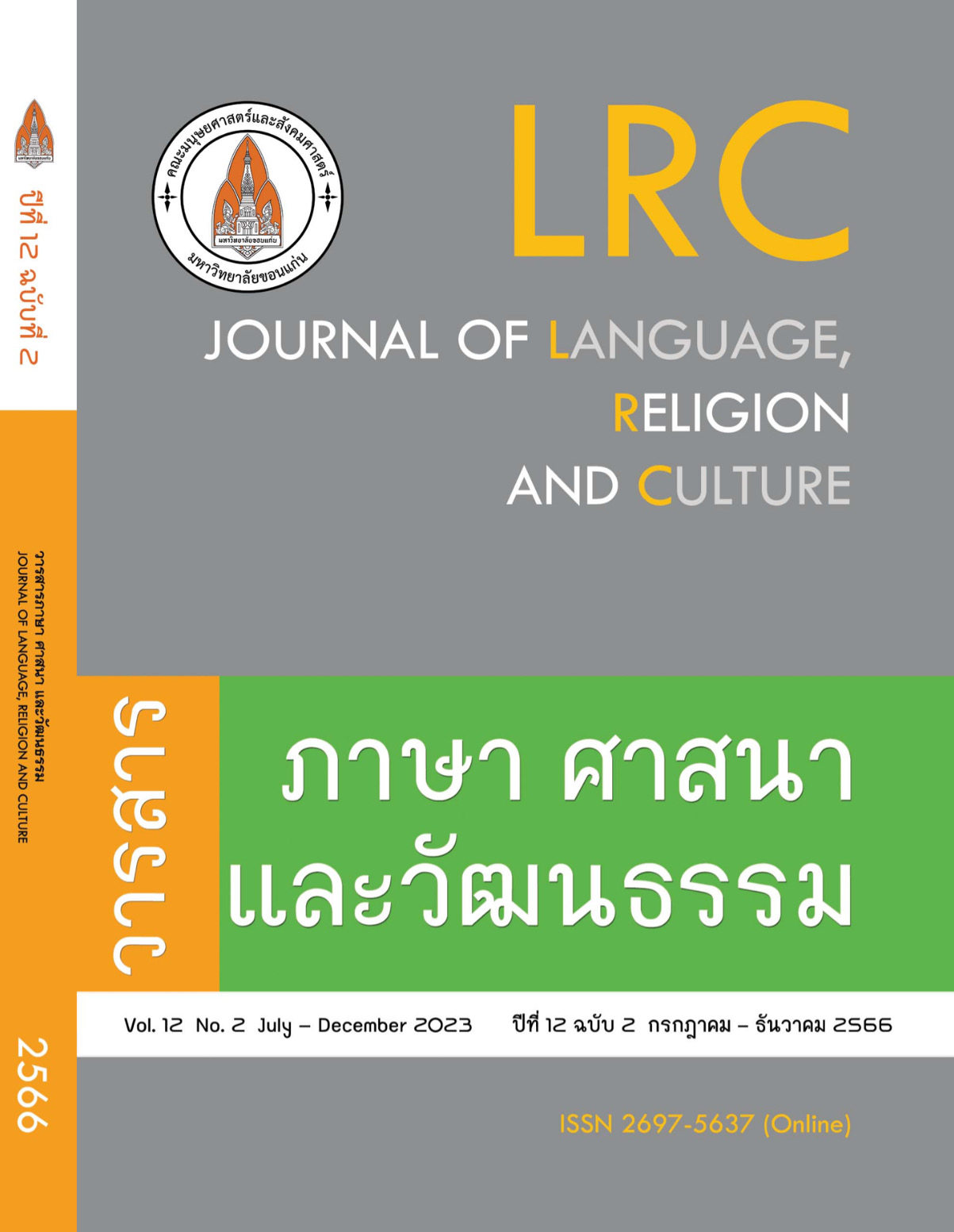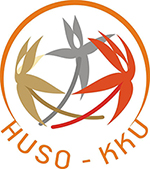อุปลักษณ์เชิงมโนทัศน์การเมืองในกวีนิพนธ์รางวัลวรรณกรรมพานแว่นฟ้า
อุปลักษณ์เชิงมโนทัศน์การเมืองในกวีนิพนธ์รางวัลวรรณกรรมพานแว่นฟ้า
คำสำคัญ:
อุปลักษณ์เชิงมโนทัศน์, อุปลักษณ์การเมือง, กวีนิพนธ์บทคัดย่อ
งานวิจัยเรื่อง “อุปลักษณ์เชิงมโนทัศน์การเมืองในกวีนิพนธ์รางวัลวรรณกรรมพานแว่นฟ้า” เป็นการวิจัยเชิงคุณภาพ โดยเลือกศึกษาตัวบทจากวรรณกรรมการเมืองรางวัลพานแว่นฟ้า เฉพาะประเภทกวีนิพนธ์ ที่ได้รับรางวัลชนะเลิศ ตั้งแต่ปี พ.ศ. 2546 - 2565 ทั้งหมด 21 เรื่อง มีวัตถุประสงค์เพื่อศึกษาถ้อยคำอุปลักษณ์การเมืองจากกวีนิพนธ์รางวัลวรรณกรรมการเมืองพานแว่นฟ้า และศึกษามโนทัศน์การเมืองที่สะท้อนจากถ้อยคำอุปลักษณ์การเมืองจากกวีนิพนธ์รางวัลวรรณกรรมการเมืองรางวัลพานแว่นฟ้า โดยใช้ทฤษฎีอุปลักษณ์เชิงมโนทัศน์
ของเลคอฟและจอห์นสัน ผลการศึกษาพบอุปลักษณ์การเมืองทั้งหมด 5 ชุดมโนทัศน์ เรียงลำดับโดยการพบถ้อยคำอุปลักษณ์จากมากไปน้อย ได้แก่ [การเมืองคือธรรมชาติ], [การเมืองคือสิ่งของ], [การเมืองคือสถานที่], [การเมืองคือมนุษย์] และ[การเมืองคือการเดินทาง] ผลการศึกษาพบว่าการอุปลักษณ์และเหตุการณ์การเมืองในอดีตมีความสอดคล้องกันจึงทำให้เข้าใจสภาวะการเมืองในแต่ละยุคสมัยในแง่มุมการประพันธ์ ในส่วนการอภิปรายผลพบว่าเกณฑ์การประกวดส่งผลต่อผลงานที่ได้รับรางวัล ผลงานและการอุปลักษณ์ดังกล่าวจึงเป็นการเสนอมุมมองทางการเมืองที่ตอบโจทย์คณะกรรมการและรัฐสภา
เอกสารอ้างอิง
Chantornvong, S. & Samudavanija, C. (1980). Thai Political and Social Thoughts. Bangkok: Bankij. (in Thai).
Choosri, I. (2014, January - June). “Pawns” on the political board: Metaphors and concept combinations in poetry. Journal of Liberal Arts Maejo University, 2(1), 13-24. (in thai).
Lakoff, G, and Johnson. (2003). Metaphors we live by. London: The university of Chicago press.
Office of the Secretary of the House of Representatives. (2004). Literature Phan Waen Fa Award 2003. Bangkok: Sukkai Sukjai Publishing. (in thai).
_______. (2005). Literature Literature Phan Waen Fa Award 2004. Bangkok: Sukkai Sukjai Publishing. (in thai).
_______. (2013). Literature Literature Phan Waen Fa Award 2012. Bangkok: Office of the Secretary of the House of Representatives. (in thai).
_______. (2013). Literature Literature Phan Waen Fa Award 2013. Bangkok: Office of the Secretary of the House of Representatives. (in thai).
_______. (2017). Literature Literature Phan Waen Fa Award 2017. Bangkok: Office of the Secretary of the House of Representatives. (in thai).
Sae-chia, T. (2016). 2006 Coup d’etat and Concepts of Demoncracy in Pan Waen Fa Award-Winning Political Poetry. VANNAVIDAS, 12, 28–42.
Samudavanija, C., & Samudavanija, C. (1973, July). Political Literature of Thailand. Social Science Perspectives, 11(7), 73-78.
Sopapol, N. (2019). The Political Concepts found in the Short Stories Awarded by Pan Van Pha. Humanities and Social Sciences Journal, Ubon Ratchathani Rajabhat University, 7(1), 195–207.
Suwandee, C., & Meekrua-iam, W. (2023). Conceptual Metaphor About Politics: Case Study of Thai politician debate in the election, 2019. Wiwitwannasan Journal of Language and Culture, 7(2), 61–78.
Thongintarag, T. (2016, July). Review of the Novel 1984: Criticizing Thai Political Society. Political Economics Journal Bura Pha, 3(2), 57-79. (in Thai).
Triwiset, B. (2017, January - April). Political Conceptual Metaphor in Poem of Phan Waen Fa Award. Rommayasan Journal of Humanities and Social Sciences, 15(1), 73-91.
Woraseeha, K. (2012, January - June). “Political demonstration is war,” a concept that is reflected as a metaphor used for political demonstration in thai newspaper. Institute of Culture and Arts Journal, 13(2), 49-55.
ดาวน์โหลด
เผยแพร่แล้ว
รูปแบบการอ้างอิง
ฉบับ
ประเภทบทความ
สัญญาอนุญาต
ลิขสิทธิ์ (c) 2023 วารสารภาษา ศาสนา และวัฒนธรรม

อนุญาตภายใต้เงื่อนไข Creative Commons Attribution-NonCommercial-NoDerivatives 4.0 International License.







